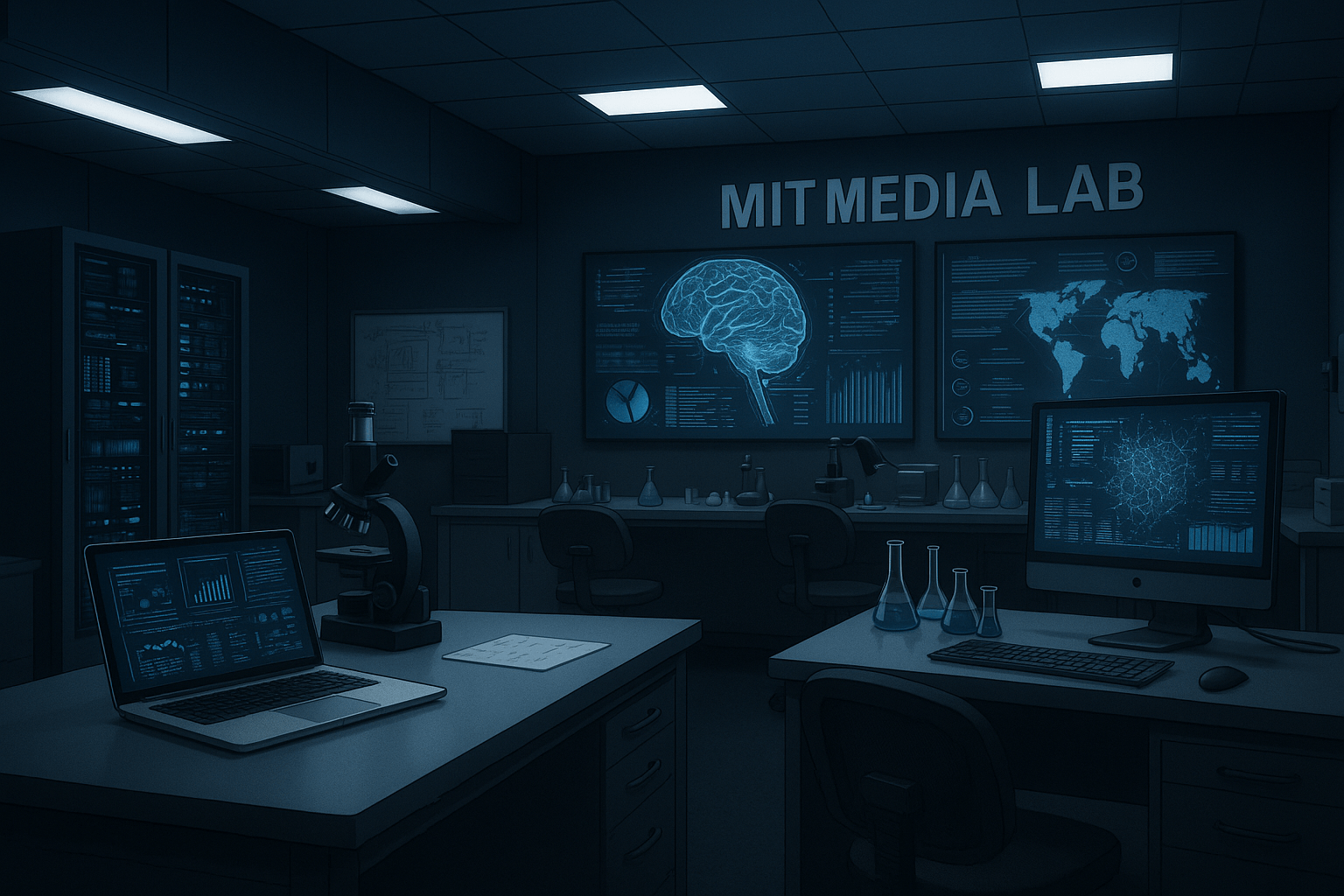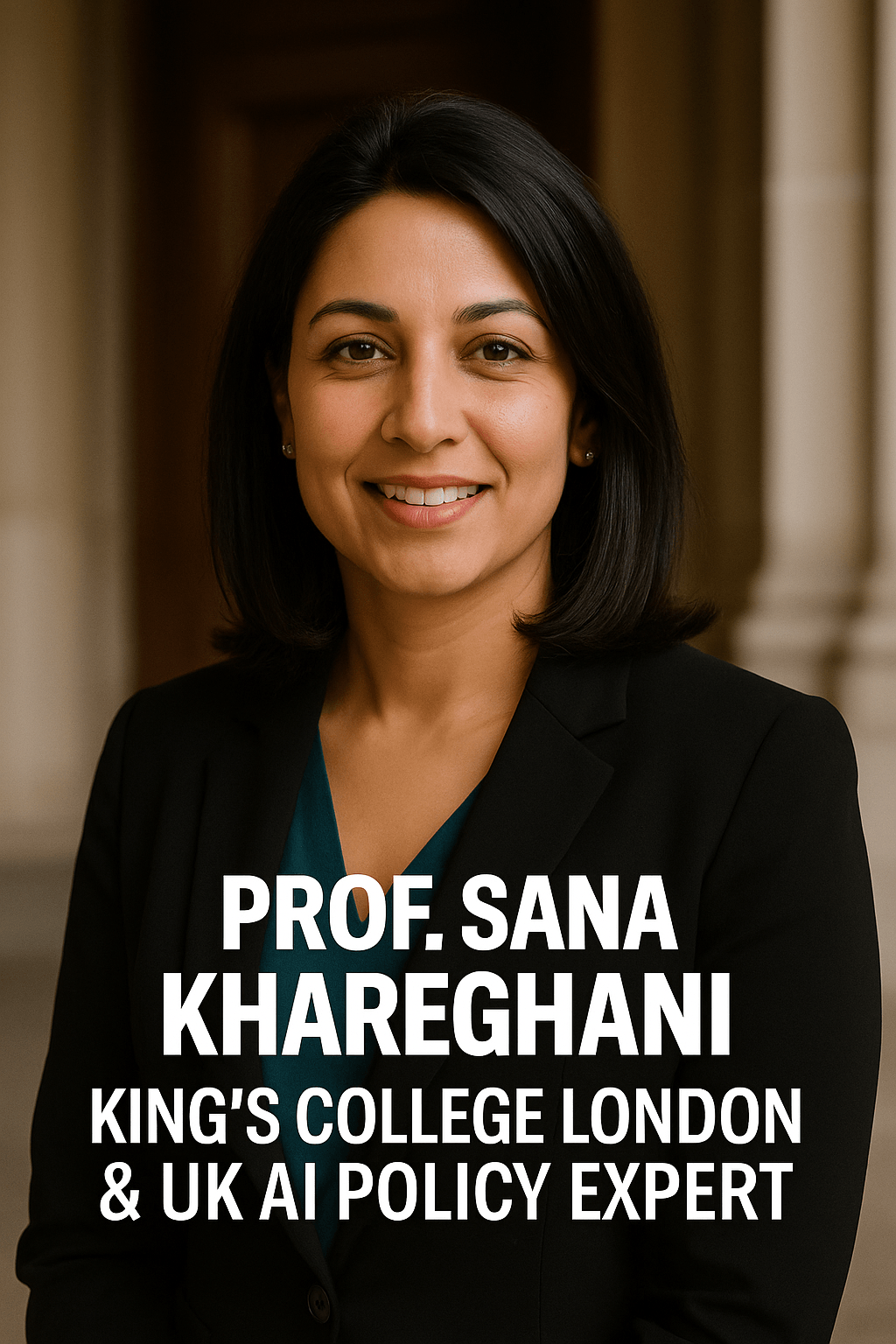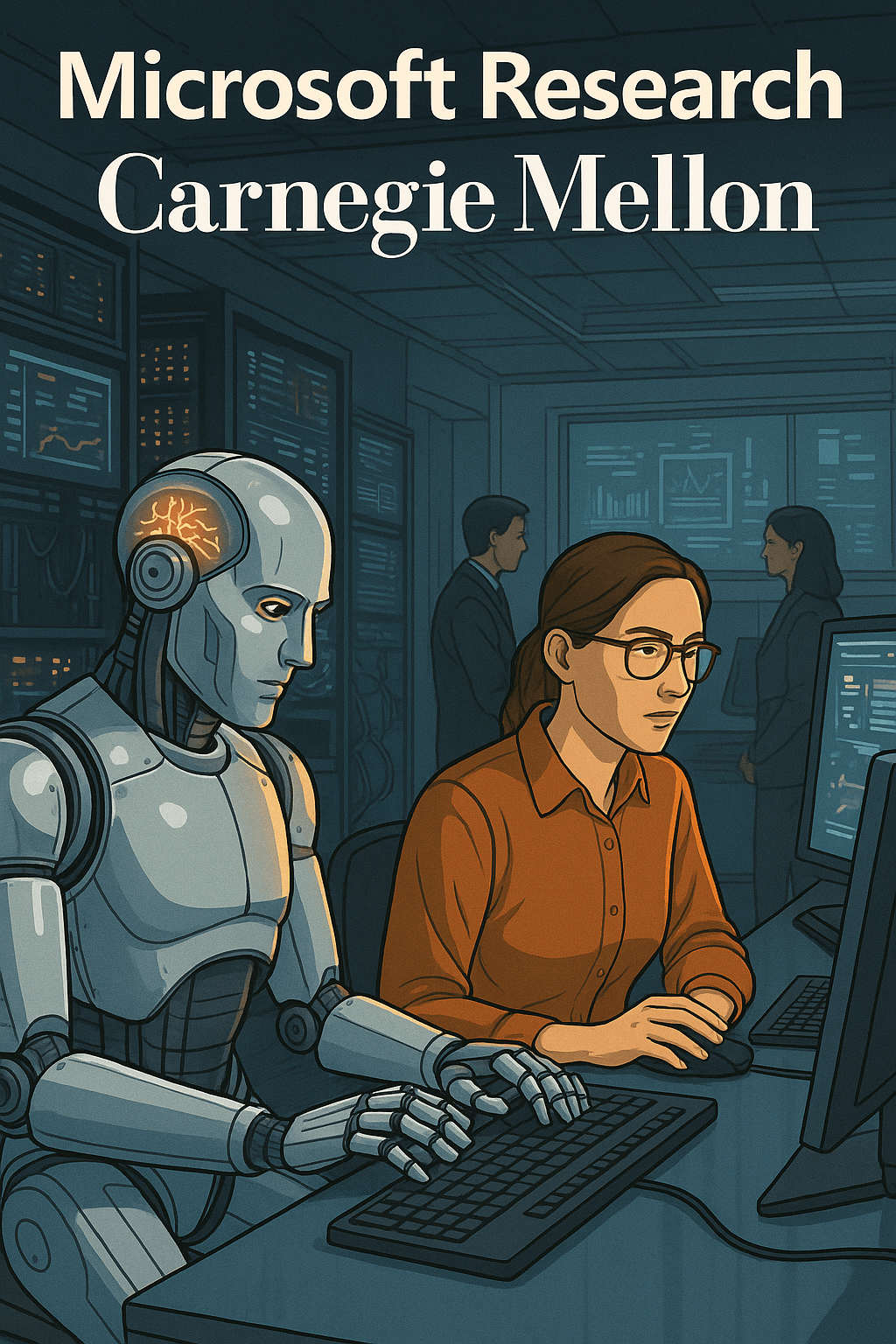As ChatGPT and Google Bard become more commonplace, worries about how AI will affect human cognition—specifically, memory and critical thinking—are growing. An increasing amount of evidence points to the possibility that an excessive dependence on AI could impair our ability to think creatively. A thorough report with research support on the subject is provided below, which includes expert opinions and recent studies on whether we run the risk of making our brains passive AI consumers.
What Is Critical Thinking?
Making logical arguments, challenging preconceptions, actively assessing the evidence, and coming to well-reasoned conclusions are all components of critical thinking. In contrast to memory-based recall, which makes use of prior knowledge or facts, critical thinking necessitates judgment, synthesis, and analysis. Researchers and psychologists at MIT point out that an excessive reliance on AI can weaken these higher-order cognitive abilities.
Research 1 – MIT Media Lab Study
In a groundbreaking study conducted by MIT’s Media Lab, 54 participants between the ages of 18 and 39 were divided into three groups: those who used ChatGPT, those who searched Google, and a control group that did not use any AI tools. EEG was used to track the participants’ brain activity as they wrote essays based on SAT prompts. Among the findings were:
- Across areas linked to creativity and executive control, ChatGPT users showed the least amount of neural activity.
- Many had resorted to simply prompting the AI and copying and pasting its responses by the time they were writing their third essay.
- The brain-only control group exhibited increased activity in the alpha/theta bands, which are associated with memory and creative thought.
The study frames AI dependence as “cognitive debt” and cautions against the temptation to outsource basic cognitive tasks.

Research 2 – Prof. Daniel T. Willingham, University of Virginia
Cognitive psychologist Professor Daniel Willingham examines how most everyday choices are made using memory-based shortcuts rather than conscious thought. He clarifies: “Memory frequently influences our decisions because thoughtful thought seems laborious, but depending too heavily on ingrained patterns slows learning and diminishes brain sharpness over time.”
His work emphasizes the role of the prefrontal cortex in critical thinking and the hippocampus in memory storage. When mental fatigue hits, we default to memory—even if it’s suboptimal for novel challenges.

Research 3 – Prof. Michael Gairlik, SBS Business School, Switzerland
Michael Gairlik, a professor at SBS Business School, studies how AI mimics human reasoning but lacks context awareness. Important realizations: AI models guess user intent but don’t fully understand it; they rely on pattern prediction rather than true understanding. background or historical context. Users may cease doing in-depth analysis as AI automates repetitive tasks, which could result in a descent in the decline of independent decision-making. Gairlik cautions that although AI can expedite processes, it may gradually erode our capacity to evaluate, critique, and creatively solve problems.

Research 4 – Prof. Yuvan So, Founder of Noodle Factory
Professor Yuvan So, founder of the Singapore-based EdTech AI platform Noodle Factory, argues that AI tools must be thoughtfully integrated into education . She reports:
- Students using AI tools as passive assistants may not fully engage cognitively unless required to critically interact with outputs.
- Platforms should be designed to prompt users to reflect, evaluate, and engage, rather than accept AI-generated responses uncritically.
- Her team advocates for new assessment methods that account for AI use, ensuring students remain mentally active during learning.

Research 5 – Prof. Sana Khareghani, King’s College London & UK AI Policy Expert
Prof. Sana Khareghani emphasizes the importance of human-centered AI design. She recommends:
AI should support essential cognitive functions rather than replace them.
- Transparent AI practices and civic regulations are essential to avoid overreliance.
- Public policy should mandate that AI tools provide cues or disclaimers urging users to verify and reflect on responses rather than passively accept them.

Research 6 – Microsoft Research/Carnegie Mellon Study
A survey of 319 knowledge workers by researchers at Microsoft and CMU (presented at CHI 2025) revealed that:
- High confidence in GenAI tools correlates with lower critical thinking effort.
- Users with higher belief in their own skills tended to engage more deeply, even with AI assistance .
- GenAI shifts users from “information gathering” to “information verification”—a subtle but significant cognitive shift that requires oversight.

How AI Affects the Brain: Logic vs. Memory
| Cognitive Function | Brain Area | AI Impact |
|---|---|---|
| Critical Thinking | Prefrontal Cortex | Decreases with overreliance |
| Memory & Recall | Hippocampus | Compensated by AI tools |
| Creative Insight | Frontal & Temporal Lobes | May reduce originality |
When users depend too much on AI for ideas or writing, brain areas responsible for attention, creativity, and executive control receive less stimulation, leading to cognitive dulling over time.
Effects Summarized:
- Short-term gains: Efficiency, speed, and error reduction.
- Long-term risks: Reduced problem-solving agility, less memory retention, and diminished originality.
- Cognitive trade-off: Users gain convenience but potentially lose intellectual independence.
What We Should Do Next
1. Educational Reform:
Incorporate prompt-based reflection, requiring students to critique, verify, and refine AI output before submission.
2. AI Design Innovations:
Embed “provocation triggers” that encourage users to question or edit output, preserving cognitive muscle.
3. Policy & Guidelines:
Governments and institutions should enforce ethical usage, requiring AI tools to display disclaimers and promote critical thinking.
4. Personal Practice:
Humans should treat AI as a co-pilot, not an autopilot. Use pens and notebooks occasionally, engage reflection prompts, and resist copy-paste dependence.
Internal Links for GlobalTimesAI.com:
- Explore AI’s role in diagnostics: “AI in Health Tech & Diagnostics”
- For policy insights: “Human-Centered AI Governance”
- Education trends: “Teaching & Learning in the Age of AI”
Final Conclusion
While AI delivers remarkable productivity and convenience, it’s not a replacement for the human thinker. Without critical engagement, we risk weakening our mental capacities—including analysis, creativity, and independent judgment. As researchers like Gairlik, So, Khareghani, and Willingham highlight, we must strike a balance: using AI as a tool, not a crutch.
In the age of abundant information, wisdom still requires a thinking mind. Let’s ensure AI amplifies—not replaces—our humanity.
Disclaimer: All images used in this article are AI-generated and intended solely for illustrative and editorial reference. They do not depict real individuals or events.
🔖 Tags:
#AIandCognition #CriticalThinking #TechnologyEthics #MemoryVsAI #HumanCenteredAI #MITMediaLabStudy #EducationAI